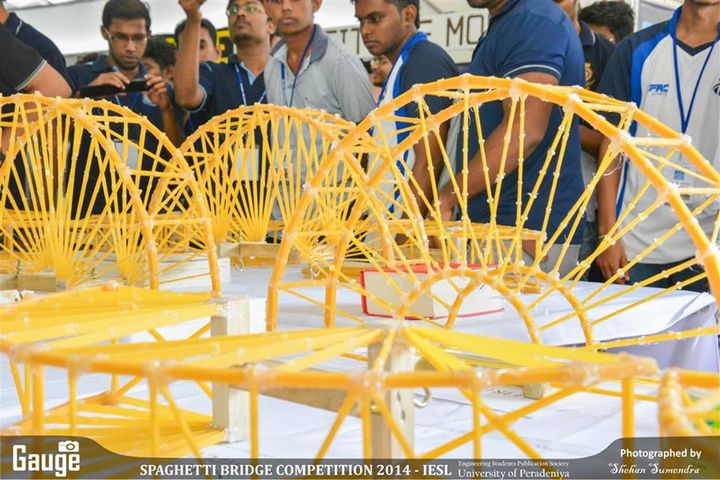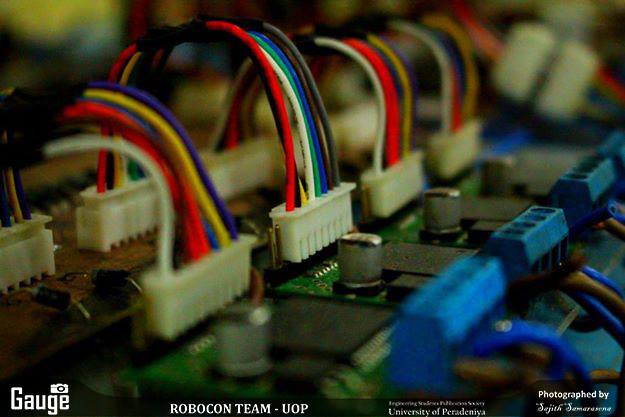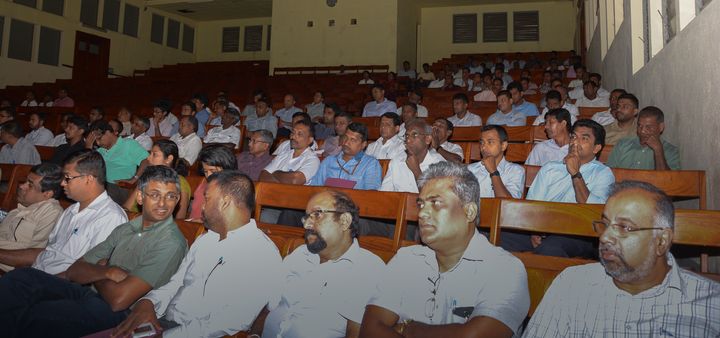IEEE ComSoc SBC UoP collaborated with the Radio Society of Sri Lanka for the event “TuneIT” - a Radio Design Workshop & Competition

IEEE ComSoc (Institute of Electrical and Electronic Engineers Communication Society) Student Branch Chapter of the University of Peradeniya is a leading society in the Faculty mainly focused on the Telecommunication discipline and modern telecommunication trends. The telecommunications industry encompasses a wide range of technologies and services, including wired and wireless communications networks, internet services, satellite communications, broadcasting, and more. These technologies have enabled the rise of a truly global society, allowing people from all corners of the world to connect and share information and ideas in real time.
As the Communication Society in the Faculty, ComSoc UoP has announced an event called “TuneIT”, which is a radio designing workshop and a competition. A radio designing workshop can be a rewarding and educational experience for the enthusiastic participants and can help foster a deeper understanding and appreciation for the principles of radio design. Though the world has evolved in the telecommunication industry it may be handy for undergraduates of Electrical and Electronic Engineering, to be in touch with the basic fundamentals behind those fabulous engineering innovations.
“TuneIT” was a one-day program, and it was held on the 7th of December 2022 at the Engineering Faculty premises of the University of Peradeniya. The event was fully organized by the committee members of the IEEE ComSoc Student Branch Chapter of the University of Peradeniya, which is led by its Chairperson, Miss Malsha Koswaththa, and Vice Chairperson, Mr Tharika Liyanage. The event was effectively carried by the guests of the Radio Society of Sri Lanka who are very capable of conducting such an event, talented and humble engineers with a ton of experiences in their professional career as telecommunication engineers.
The main goal of the Society for organizing and holding up such an event was to give undergraduate students a basic idea about Radio Technology, give them an opportunity to practically engage with Radio signals, and let them have hands-on experience with Radio Technology Equipment. “TuneIT” wasn’t an event where all the participants were asked to sit and listen to the keynote speaker for the whole day, but it was an interactive session where all the participants were supposed to follow up a lecture to some point and after that, use the learned theories in practice building a simple Radio Design which the experts from the Radio Society of Sri Lanka guided. All enthusiastic students from inside the University, as well as outside, were warmly welcomed to join the Workshop and gain some knowledge and memorable experiences.
Since the event was planned with some team events, all the participants were asked to register as a group, including five enthusiastic undergraduates and an interesting name for their team. The registrations of the teams were taken before the event due to the limited number of available seats. Each of those teams was provided with the necessary equipment to implement the Radio with their team members. After the registration deadline, there were fourteen groups registered for the event which was a huge encouragement for us, to see that there are many students who are willing to gain some experience and knowledge in telecommunication disciplines.
At the start of the event, all participants were educated with a lecture series on the Basics of Radio Technology, its working principles, and applications in day-to-day life. This simple yet very informative series was carried out by Mr. Tharanga Premathilake of the Radio Society of Sri Lanka. After enlightening the students with such valuable knowledge, the students were then asked to be engaged in a practical session based on Radio signals which was a fresh experience for all the attendees of the event. In this part of the event, students were given the chance to communicate in real-time with some other members of the Radio Society of Sri Lanka working on other Radio Stations from all over the country via a Radio Setup which was implemented by the engineers of the Radio Society of Sri Lanka. All the participants were entirely delighted to experience this real-time communication via the Radio Setup since it was a rare and valuable experience that many would not get in their lifetime. The event was more delighted by allowing the participants to practically use the setup and talk with an unknown person on the other side of the Radio Station. It was a pleasing experience for us all to have a word with another enthusiastic engineer in a faraway station. They provided some valuable advice and clarified all the doubts of the participants.
After the interactive session with the radio setup, it was time to have a break and be refreshed for the next part of the event. In the second session, Engineers from the Radio Society of Sri Lanka provided another short and very informative session about the modern aspects of receivers and antennas used for telecommunication purposes. Participants were allowed to get hands-on experience with the devices that they brought to the event which was an interesting experience to see the functionality of each piece of equipment.
Concluding that valuable lecture, it was time to commence the most awaited and thrilling part of the event, the ‘Radio Design and Competition’. In this part of the session, participants were asked to build a Radio Signal Receiver with the aid of knowledge they were provided at the prior part of the event. All the necessary equipment and instructions were provided to the groups and all participants were guided by professionals from RSSL and aided by the members of the ComSoc society. Participants were so busy implementing the Radio Signal Receiver. Yet, they were delighted to compete with each other using their abilities in handling electronic components and assembling them in their unique designs. Each team had to use the Radio Signal Receiver to follow up and find the emitter which was hidden in the Faculty premises. So, all the teams were hurrying to implement the receiver first and get in the fox hunt challenge. After all the groups were done constructing the receiver of their respective groups, the competition began!
It was amazing to watch the designs by each team using the fundamentals that they were taught, improving it further with their own abilities and visions. Many teams were able to finish implementing their Radio Signal Receiver and went outside to participate in the fox hunt challenge. They were not given a slight hint about the whereabouts of the transmitter, and they were supposed to find it with the aid of the receiver they built.
After some time, one team named “Falcons” was able to find the hidden emitter and complete the foxhunt challenge successfully. For the second and third places, it was considered the design of the receiver that each team made, inspecting the soldering skills, assembling skills, and finishing of the receiver. Only the first place was awarded a valuable prize along with valuable certificates for each member of the team “Falcons”. All the participants were happy to be a part of the interactive and educative event for all of them. Each participant was appreciated with a certificate for their encouragement and active participation in the whole event.
Finally, it was time to wind up the session, thanking the members of the Radio Society of Sri Lanka and appreciating their service and contribution with a token of appreciation. While the final part of the event was taking place, some little refreshment was provided for each participant since they were all exhausted with the fox hunt challenge.
The event was indeed a tremendous success, with all the support received from the engineers of the Radio Society of Sri Lanka and from the enthusiasts who participated in the event with passion and willingness to add something new to their engineering careers.
Shanon Gunawardana Third year, Department of Electrical & Electronic Engineering, Faculty of Engineering, University of Peradeniya.




